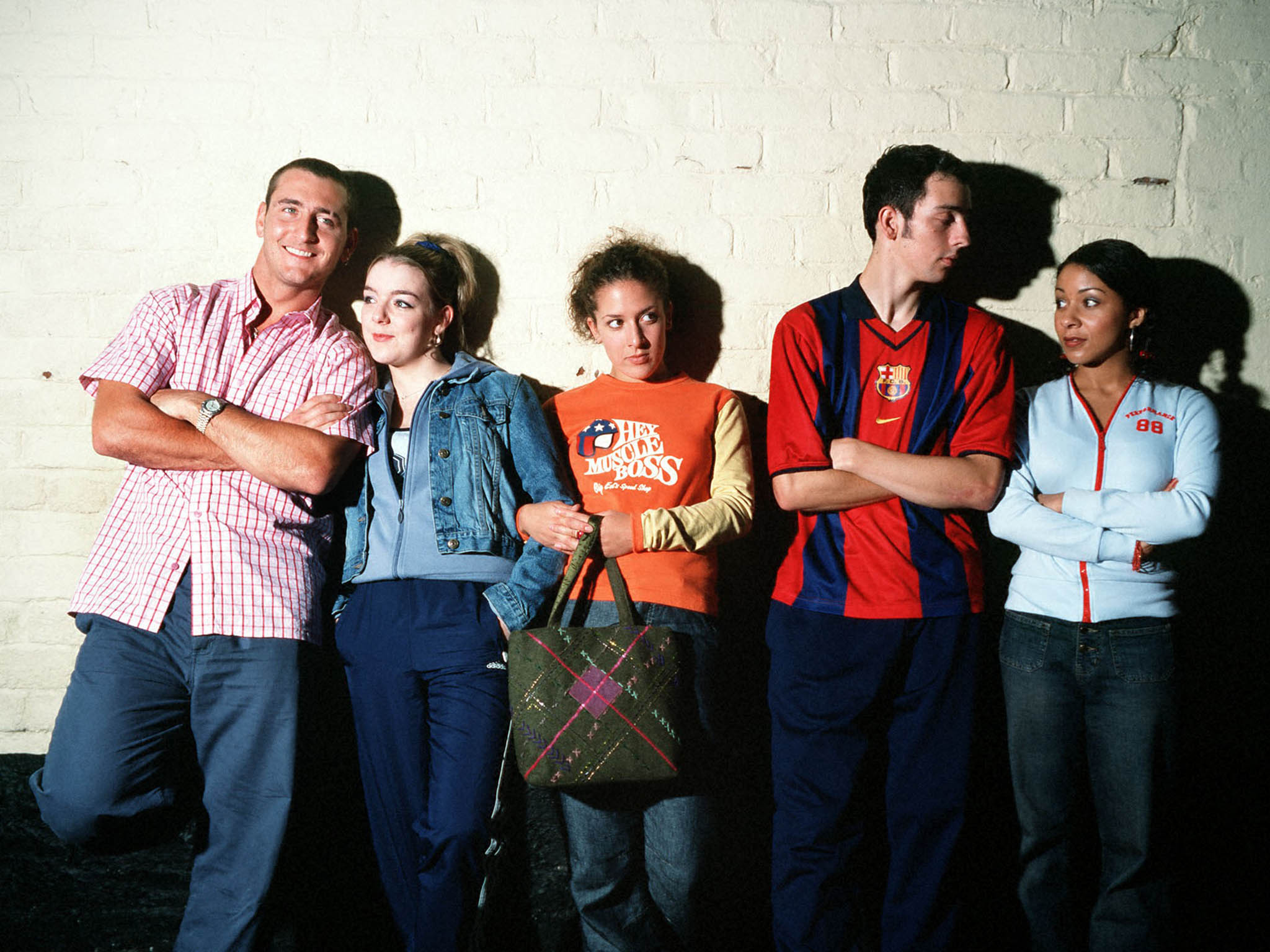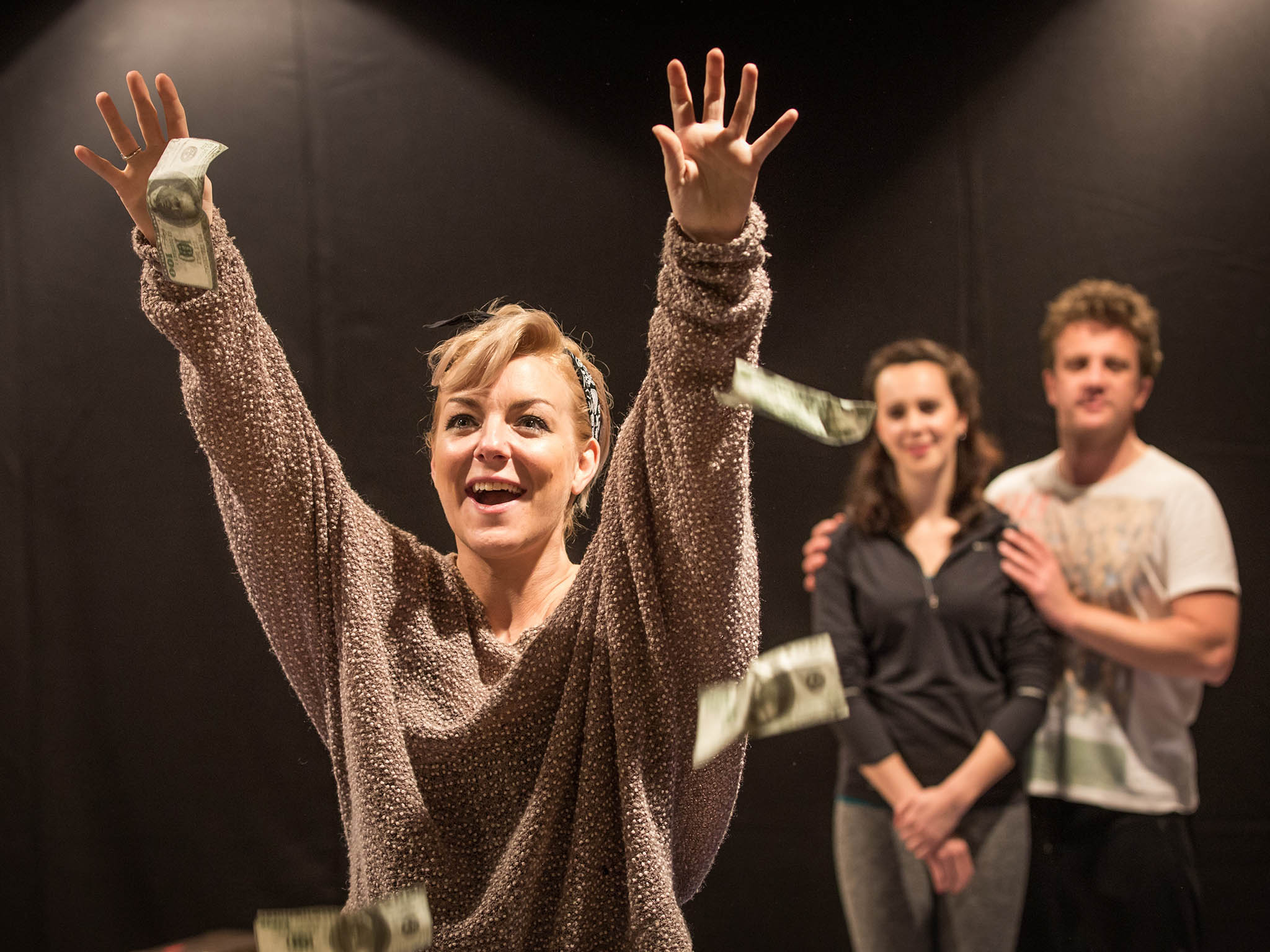Sheridan Smith: Taking on Barbra Streisand and being the female Hamlet in revival of Funny Girl musical
Sheridan Smith can do little wrong these days, whether as Cilla Black or as Shakespeare’s Titania

Sheridan Smith is eating her lunch in the restaurant of the Menier Chocolate Factory, the London theatre, in a break from rehearsals for Michael Mayer’s eagerly anticipated revival of Funny Girl. Or, rather, she is munching steadily, until I fantasise about a possible scenario that momentarily puts her off her food.
In this fresh take on the Jule Styne/Bob Merrill musical, premiered on Broadway in 1964, Smith is playing Fanny Brice, the headliner of the Ziegfeld Follies, who had an ugly-duckling-to-showbiz-swan trajectory in the theatre. The musical – with a score that abounds in hit tunes such as “People”, “Don’t Rain on My Parade” et al – presents us with a protagonist who, in reality, had a less happy romantic life. She married Nicky Arnstein, a gambler who impresses Fanny with his starched, ruffled shirts and swanky ways but who was destroyed through a combination of his own personal weakness and the emasculating stellar progress of his spouse.
The part launched Barbra Streisand, then barely 22, on the path to megastardom. Mayer’s production is the first time that the show has been revived with a major star since Streisand hung up her clogs in the early summer of 1966 after the three-month London run.
Now the stakes are headily and significantly altered. Smith is the adorable peroxide pixie from Lincolnshire, a household name who first swam into our ken in such TV sitcoms Two Pints of Lager and a Packet of Crisps, The Royle Family and Gavin and Stacey. That was before her repertoire expanded into a brilliantly diverse medley of roles which she has intrepidly tackled and mostly conquered: a hilarious Janis Joplin-like Titania for Michael Grandage in A Midsummer Night’s Dream; a sublimely warm and winning Elle, the supposed airhead who is, in fact, a good deal smarter than her conceited boyfriend in the musical of Legally Blonde; and a chilling Hedda Gabler at the Old Vic.
Unlike Streisand, Smith does not come to the role of Fanny Brice with only one show-stopping hit to her name. She is the proven legitimate actor that the prodigious Streisand has always only talked of becoming. This pinpoints the magnitude and intrepidity of the challenge that Smith has set herself. Funny Girl is a New York-based musical in every atom of its being. This production by Mayer (himself an American whose CV bristles with fresh, arresting fare such as the musical of Spring Awakening) is beginning life at the small (150-seat) but hugely influential Menier Chocolate Factory. “I had a lovely time here about 10 years ago playing Audrey, the sales assistant in Little Shop of Horrors, and it is lovely to be back... in a slightly more sophisticated part,” says Smith.
After the run here, this Funny Girl is destined first to hit the West End, where it is already booking out at the Savoy. Then its sights are squarely set on Broadway. In the worst-nightmare scenario, a Brit pretender to the part that crowned and canonised Streisand has all the allure for the locals of, say, Adele attempting to set up shop in the Philippines as the new Imelda Marcos. It’s not this, though, that immobilises Sheridan Smith’s fork on its journey from plate to mouth. On any Broadway leg of its progress, Streisand is well-nigh bound to see what they have done with/to her baby.

But what if looking out into the auditorium, our leading lady were to spy that unmistakable profile in the intimate 150-seat confines of the Menier? Smith’s wicked-elfin face is always brimming with humour and mischief. There’s something about her that makes you long to scandalise her and put a shocked beam on those features. My gambit certainly does that all right, and releases a stream of talk that sheds a precise light on the remakers’ aims and intentions.
“Oh my God, I don’t think I could cope. I wouldn’t want to let her down,” Smith exclaims, doing an amusing mime of someone self-imploding. Playing my sage veteran card, I decide to probe at this point: “Don’t you think her presence would you inspire you to give the most fantastic performance of your life?”
Fanny’s first big number, that ends with her vociferating to an empty theatre, imagining the crowds she will one day command, is the high-risk “I’m the Greatest Star”. I had earlier commended her on out-singing Cilla Black in the title role in the excellent three-part television drama on the Liverpudlian’s early life. “Yes, but there’s only one Barbra Streisand – and she’s brilliant,” was her answer at that point. Confronted with my imaginary scenario of Streisand sneaking in for a butcher’s at the new production’s British-studio-scale, she changes her mind: “No, you’re probably right. I’d perform my heart out, and I would be doing it out of respect for her”.
The 34-year-old Smith grew up in a household connected to show business, unlike Streisand, whose widowed mother wanted her to train to be a school secretary. She is the daughter of a country-and-western duo called the Daltons, and is one of those kids who can barely remember a time before acting school. Her blissfully entertaining performance in Legally Blonde had radiant warmth and winning wit. Among Smith’s ex-partners is the comedian James Corden.
She is constantly alert and drinking things in, the eyes working non-stop with that “I know where you are coming from and it’s all right, you can continue” shtick that is so seductive and a part of her appeal. When I get to the Menier, a car crash and the subsequent massive detour has added a punishing two hours to my journey from Oxford. But Smith is concerned and matter-of-fact, her expression lighting up mischievously when I tell her that the delay meant that I have chatted to two members of her older fan club – a very nice retired couple from Abingdon.
“We love Sheridan enough to book for – what is it? – Funny Girl at the Savoy in May,” they told me. Smith looks delighted: “Oh, I am so flattered to hear that”; and tickled at the slight backhandedness of this rather belt-and-braces compliment. She has a face that makes you long to impose a scandalised smile upon.
Mayer chips in with a line from “Greatest Star” to epitomise the production’s approach, changing the first-person-singular to the plural as he does so: “These are facts; we got no axe to grind”; a variant of Fanny’s protestations to a theatre proprietor who is showing her the door: “I got 36 expressions/ Sweet as pie to tough as leather./ And that six expressions more/ Than all those Barrymores put together”. His production does not see itself as competing with legendary first one.
In any case, isn’t Fanny Brice a part that, like Hamlet, takes on the lineaments and personality of the performer in question. “That’s funny. Michael [Mayer] had said in rehearsal that she’s the female Hamlet” reveals Smith. The show’s opening, which was always there onstage, but made iconic by the movie version, has Fanny appraising herself in a mirror with the sardonic, Yiddishly-intoned line, “hello, gorgeous”, before the drama proceeds in flashback.
“She looks long and hard at herself in that mirror trying to understand where and how her relationship with Nick went wrong,” Smith adds. She professes surprise that Streisand, on one basic level, lost interest in a part she played on stage for some two-and-a-half years, and with the notoriously troubled script (she performed the 43rd draft of the final scene on the Broadway scene on opening night). “I don’t think I would ever get bored playing the part. It’s about a woman who can’t get the work/life balance right – and I’d guess that that resonates for audiences in 2015 more than it did in 1964.”
Which brings us to the subject of Nicky Arnstein. In 1964, the poor, sorely tried script-writer, Isobel Lennart (who also wrote the screenplay for the film that won Streisand the Oscar) was constrained by the fact that the producer, Ray Stark, was Fanny Brice’s son-in-law, and his spouse Fran was not about to have her parents’ relationship (rocky and debt-ridden) come on stage within a thousand-mile radius of Arthur Miller, let alone Strindberg. Harvey Fierstein, hired to reboot the book, has written a script that manages to be true both to the tricky elephant-in-the-room aspects of the drama and to the need to keep a grip on the fact that this is a Cinderella/princess fable.

Mayer is a broad-chested, dauntless man who does not feel the need to wait for Sheridan Smith to take a comfort break before pronouncing that she is the perfect Fanny because: “She is incapable of a moment of untruth... I chose Darius Campbell as Nicky because the second he walks onstage he is the ‘irresistible’ man whom women want to have and men want to be.”
Smith is very acute about the psychology of the show. “You can tell that Fanny’s mother has been through a similar situation that Fanny is going through with Nick: ancestral proneness to misogyny.” Smith is quick to correct me when I misquote one of the mother’s great lines: “Love him a little less; and help him a little more.” “The word is ‘respect’ – ‘respect him a little more’ .”
There’s a lovely, searching song, “Who Are You Now?” which, it is rumoured, was the one Streisand would drop on two-show days when she wanted to pop up to her duplex and dust her tchotchkes between the matinee and evening show. “In our version, the song is crucial. Fanny and Nick sing it, lost in their own thoughts, as a kind of duet, as they muse on what they have done to one another. Fanny is one of those performers who lives chiefly on stage to the detriment of their personal relationships.
“It’s something I can very much relate to. In ‘Sadie, Sadie, Married Lady’, she sings, ‘I’m a corporation now/ Not me, myself, and it’. But it doesn’t really work out like that.” Nicky Arnstein, in the musical’s conception, becomes a crook because Fanny’s stage success makes him feel impotent. “We get her sense of responsibility for this,” Smith comments.
Streisand sings the song “People” – “People, people who need people/ Are the luckiest people in the world” as if it is a general UN-backed rallying cry about the general need for human bonding. “But it’s about Fanny discovering at this point in her ascent that ‘you can’t take an audience home with you’,” says Smith, who knows what she is talking about.
“From our first rehearsal of ‘People’, I felt like I was hearing the song for the first time,” reports Mayer. “Sheridan brings a simple dramatic truth to the acting of it and allows the genius of Styne and Merrill to emerge. What we have is not an anthem for everyone but an insight into the character’s experience of the world.”
The adjective which I incessantly want to apply to Sheridan Smith is “Shakespearean”. It sounds counter-intuitive but it puts its finger on the gradient and flavour of her talent. Briefly, she is inextricably tragicomic and malleably classless.
Streisand, in my estimation, is the most electrifyingly talented performer of the recorded 20th century, but she remains, at some level, ineradicably aloof. Yet she’s a shrewd, generous woman – attuned to the symbolism of passing on torches since that unforgettable pairing on The Judy Garland Show in November 1963 that proclaimed to the world that the Funny Girl casting department had not gone out of its mind.
Streisand is also a shrewd and philanthropically munificent woman and one who, having experienced it at 21, appreciates the symbolism of torch-passing. She was photographed at the 2014 Oscar parties with Shirley Bassey and Adele. She will warm, you mark my words, to the lovely, exalted, ordinariness of Sheridan Smith.
It’s good to think there may soon come a time where there are pictures of the Brooklyn Nefertiti handing over the Ziegfeld Follies crown to our own home-grown star.
Funny Girl is at the Menier Chocolate Factory to 5 March, and then at the Savoy Theatre from 9 April (www.menierchocolatefactory.com)
Join our commenting forum
Join thought-provoking conversations, follow other Independent readers and see their replies
Comments